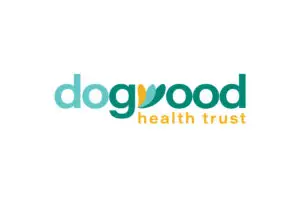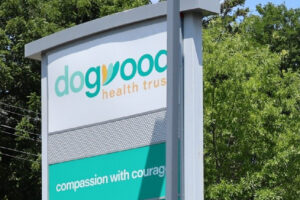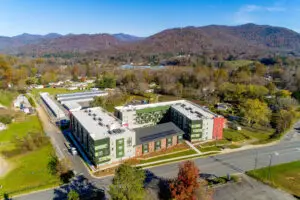Constantine to take on the role mid April 2023
Asheville, N.C. – Dogwood Health Trust is pleased to announce that Mark D. Constantine, PhD, a well-respected leader and influencer within health philanthropy, will join the organization as Senior Vice President of Community Investment in mid April 2023. Constantine joins Dogwood after having served as President and CEO of Richmond Memorial Health Foundation (RMHF) for seven years. RMHF works explicitly to foster an equitable and healthy Richmond region through grantmaking, research, convenings and impact investing.
As Senior Vice President of Community Investment, Constantine will lead Dogwood’s Community Investment Team in the visioning, development and implementation of ambitious program strategies designed to advance strategic initiatives toward Dogwood’s purpose of dramatically improving the health and wellbeing of all people and communities in Western North Carolina. Constantine will help identify and build strategic relationships based on shared objectives with key leaders, community-based organizations, nonprofits and other funders in order to fund bold and innovative upstream strategies that address health disparities and inequity in WNC.
“Mark is a veteran leader within the world of health philanthropy and has a keen understanding of what it means to uphold equity as the standard by which impact is measured,” said Dr. Susan Mims, CEO of Dogwood Health Trust. “A self-professed ‘student of philanthropy’ throughout a long career, Mark combines his deep knowledge and experience with humility, creativity and authenticity that will resonate well in our region. We look forward to his thoughtful and intentional leadership and welcome him to our team.”
“I’m excited, honored and energized at the prospect of joining Dogwood Health Trust and leading the Community Investment Team’s focused work with community and partners,” said Constantine. “I am humbled and eager to work with this incredible team and the people of Western North Carolina.”
While at RMHF, Constantine adopted a five-year Strategic Framework centering the Foundation’s work in health and racial equity. He also worked to align mission and money through impact investing strategies including debt and equity investments in CDFIs, foundation-directed Program Related Investments, and grants to position partners for impact capital.
In addition to his work at RMHF, Constantine has contributed more broadly to health philanthropy through his service as Board Chair of Virginia Funders Network, Co-Chair with Dr. Lauren Powell of the Jeffress Trust Awards Program in Research Advancing Health Equity, and as a faculty member for Grantmakers in Health Terrance Keenan Institute for Emerging Leaders in Health Philanthropy.
Prior to joining RMHF, Constantine served as Senior Vice President at the Jessie Ball duPont Fund in Jacksonville, Florida, where he directed the Program-Related Investment and affordable housing activities of the Fund. He also served as a Senior Fellow at Foundation for the Mid South.
Constantine has authored two books, Wit and Wisdom: Unleashing the Philanthropic Imagination (2009) and Travelers on the Journey: Pastors Talk about Their Lives and Commitments (2005), as well as the award-winning monograph, “Where Hope and History Rhyme: Reflections and Findings from the MidSouth Commission to Build Philanthropy (2005), and an article, “Making Health Equity Real: Implementing a Commitment to Engage the Community Through Fellowships” (Foundation Review, December 2019).
Constantine holds a PhD from the University of North Carolina at Chapel Hill, an MBA from the Fuqua School of Business (Duke University) and a Master of Theological Studies degree from Duke Divinity School. He was a 2006/2007 Fellow of the Emerging Leaders Program directed by the Centres for Leadership at Public Values at the University of Cape Town and Duke University.
###
About Dogwood Health Trust
Dogwood Health Trust is a private foundation based in Asheville, North Carolina with the sole purpose of dramatically improving the health and wellbeing of all people and communities of 18 counties and the Qualla Boundary in Western North Carolina. Dogwood Health Trust focuses on innovative and equitable ways to address the many factors that contribute to overall health and wellbeing, with a focus on housing, education, economic opportunity, and health and wellness. Dogwood Health Trust works to create a Western North Carolina where every generation can live, learn, earn and thrive, with dignity and opportunity for all, no exceptions. To learn more, please visit www.dht.org.





